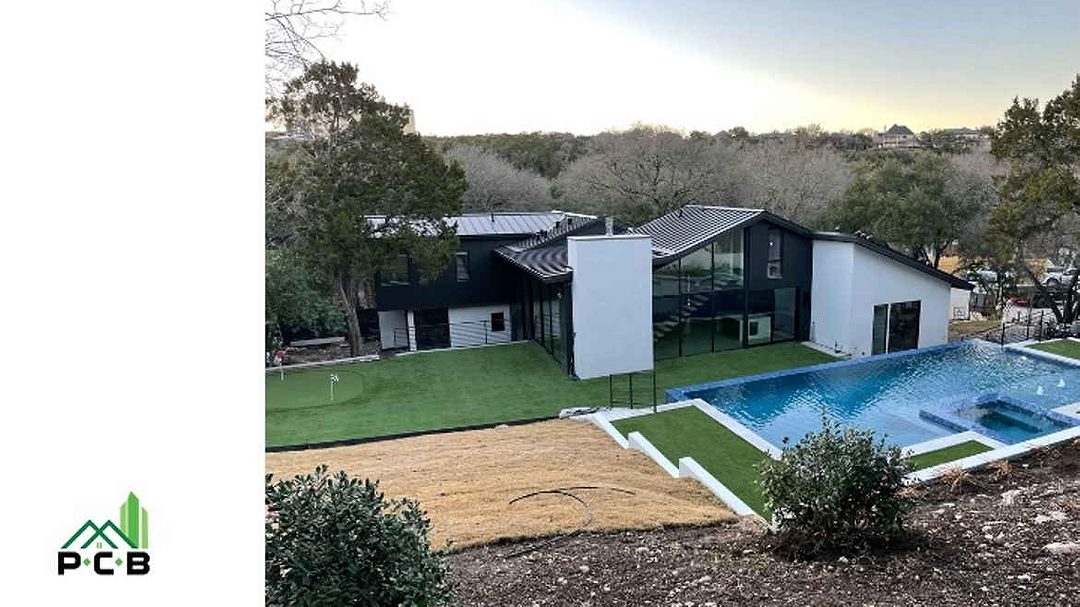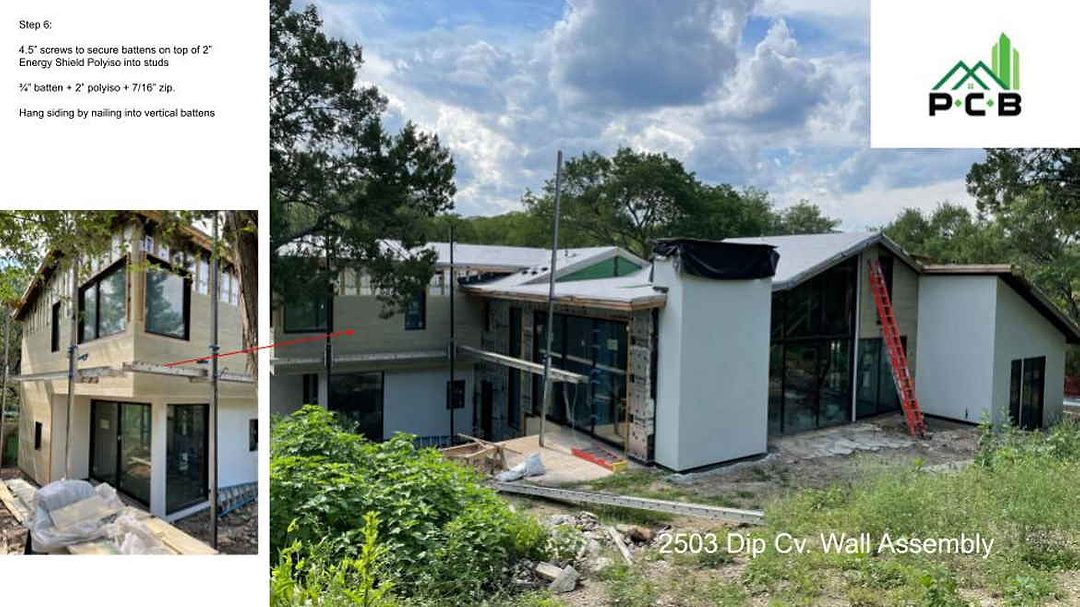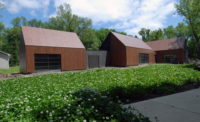Case Study: Atlas EnergyShield Enhances Energy Efficiency and Comfort of Austin Residence

With the help of Atlas EnergyShield, the vertical walls reach an R-value of 27.1 and the roof achieves an R-value of 38.1 for this home in Austin, Texas. Photos courtesy of Atlas Roofing Corp.

“Before we installed the siding and just had the EnergyShield exposed, you could feel the heat radiating off it. So, to see and feel the heat radiating off the insulation demonstrated so much of the effectiveness of the product because we knew it wasn’t going into the home," said Petrini Custom Builders President Tom Petrini.
In February 2021, Austin experienced a historical winter weather event that resulted in failed power grids, burst water pipes, property damage, and impacted travel in the area. In contrast, the Barton Hills residence with EnergyShield continuous wall insulation already installed – yet no siding at the time – did not experience frozen or burst pipes.


When renovating a home in Austin, Texas turned out to be rebuilding 90% of the structure, Petrini Custom Builders used the opportunity to incorporate sustainability in the design by turning to Atlas Roofing Corporation's EnergyShield product.
Project Challenge
For more than a decade, Austin, Texas has been rising in the ranks as one of the most attractive real estate markets in the U.S. Austin’s culture, industry, parks, food, and music scene are some of the reasons people have flocked to the city. Just minutes away from downtown, nestled on a quiet, secluded half-acre lot is the Barton Hills residence. This home, being built by Petrini Custom Builders, completed the first phase of construction in late 2021.
At first, Petrini Custom Builders president, Tom Petrini, and his team planned for an interior renovation of the home; however, during demolition, the team discovered structural concerns affecting the exterior of the home. It lacked adequate insulation and sheathing, and the stacked stone on the front of the house was not well constructed and could be easily pushed over. As a result, the team demolished approximately 90% of the original house and built a new home that expanded beyond the existing slab and expanded the original footprint.
Approach
Petrini Custom Builders focuses on creating high-performance residential homes, elevating design, and performance. Constructing an energy-efficient house was a top priority for the team as they looked to build this Barton Hills residence. Petrini also wanted to ensure the house was water and airtight to protect against the Austin climate.
Petrini has an MBA in Sustainability, so he, along with Garwood Architecture, designed the residence with environmental responsibility and high performance in mind. He knew he wanted to optimize thermal performance and long-term energy efficiency while maximizing the interior space of the home, so he looked to polyiso continuous insulation to place on the exterior wall.
Petrini was familiar with the benefits of continuous wall insulation solutions and chose Atlas EnergyShield for the home. EnergyShield is made with a polyiso foam core with tri-laminate foil facers and achieves a high effective R-value with minimum material thickness. When treated at the joints and penetrations, EnergyShield functions as the water-resistive barrier (WRB) effectively managing liquid and moisture vapor in the wall assembly as a drainage plane and Class I vapor retarder. EnergyShield also helps contribute to good indoor air quality (IAQ), enhancing the health and well-being of the home’s occupants. The insulation is mold resistant, helping decrease the potential for rot, mold, and mildew, which can contribute to poor IAQ and health complications. EnergyShield is formulated with HCFC-, CFC- and HFC-free blowing agent technology. And it is GREENGUARD Gold certified, which ensures that it meets the world’s most rigorous third-party chemical emissions standards, helping to reduce indoor air pollution and chemical exposure in the form of VOCs. In addition, EnergyShield is manufactured with zero ozone depletion potential (ODP) and negligible global warming potential, helping cut HVAC energy and carbon emissions.
Installation
Petrini Custom Builders strives to go above and beyond when it comes to the performance and efficiency of the homes they build. Over the wood-framed base wall, the team installed 2-foot EnergyShield insulation boards with compatible flashing components to create a weather resistant barrier and achieve an R-value of 13.1 outbound of the sheathing that will mitigate thermal bridging.
The Barton Hills residence utilizes a variety of claddings, including stucco, siding from the Artisan® Collection by James Hardie, and half-inch powder-coated aluminum achieving a unique exterior facade. EnergyShield enables design flexibility by being compatible with a multitude of various cladding options and the building envelope components needed to install them. To allow for proper drainage, a rainscreen was created behind the siding using furring strips. To complement the high-performance building envelope, the home’s interior wall cavity includes 3.5-inch open-cell spray foam for additional thermal efficiency. The vertical walls reach an R-value of 27.1 and the roof achieves an R-value of 38.1.
“The foil facer on EnergyShield makes a significant difference in the energy performance and heat resistance of the house,” said Petrini. “Before we installed the siding and just had the EnergyShield exposed, you could feel the heat radiating off it. So, to see and feel the heat radiating off the insulation demonstrated so much of the effectiveness of the product because we knew it wasn’t going into the home.”
Impact
In February 2021, Austin experienced a historical winter weather event that resulted in failed power grids, burst water pipes, property damage, and impacted travel in the area. In contrast, the Barton Hills residence with EnergyShield continuous wall insulation already installed – yet no siding at the time – did not experience frozen or burst pipes.
EnergyShield provides superior thermal performance in all climates, cold and warm seasons.
“We noticed the house was immediately more comfortable during the hot summer months,” said Petrini. “The cooler indoor climate gave us an advantage in hiring and retaining labor to work on the job site. With skilled labor at a shortage, that was an unexpected benefit.”
Upon completion, the main house will be approximately 3,100 square feet with a detached pool house — scheduled to be completed by Summer 2022 — providing an additional 1,000 square feet. Deservingly, Barton Hills, which has countless luxurious and sustainable attributes, will be featured in Austin’s modern home tour in 2022.
Looking for a reprint of this article?
From high-res PDFs to custom plaques, order your copy today!







